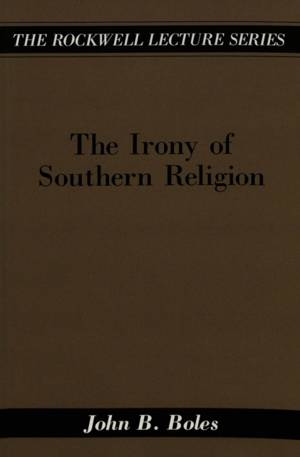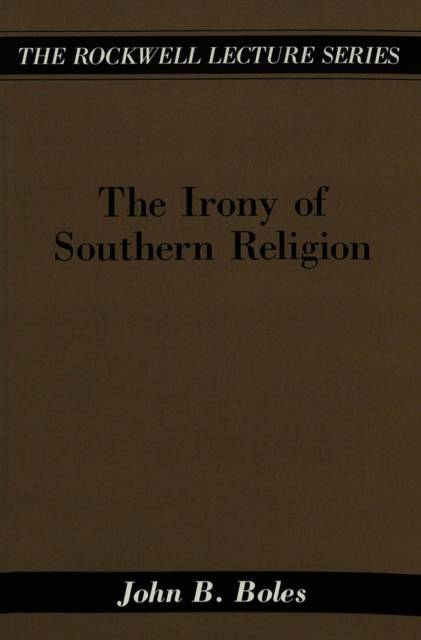
- Afhalen na 1 uur in een winkel met voorraad
- Gratis thuislevering in België vanaf € 30
- Ruim aanbod met 7 miljoen producten
- Afhalen na 1 uur in een winkel met voorraad
- Gratis thuislevering in België vanaf € 30
- Ruim aanbod met 7 miljoen producten
Zoeken
Omschrijving
Over the last three decades scholars have rediscovered the religious dimension of the Old South's history. Evangelical Christianity was a central component of the culture of both antebellum whites and blacks. In its formative years evangelical religion stood in critique of the dominant society and opposed slavery, but by the eve of the Civil War evangelical religion was a stalwart defender of that peculiar institution. Religion was essential to the development of southern nationalism, was used to defend secession, and convinced white southerners that victory was certain. Moreover, when defeat came, southerners again turned to religion to explain the course of events. Blacks also found meaning and solace in evangelical Christianity; in the churches they were treated more nearly as equals than anywhere else in southern society.
Specificaties
Betrokkenen
- Auteur(s):
- Uitgeverij:
Inhoud
- Aantal bladzijden:
- 118
- Taal:
- Engels
- Reeks:
- Reeksnummer:
- nr. 5
Eigenschappen
- Productcode (EAN):
- 9780820425849
- Verschijningsdatum:
- 1/10/1994
- Uitvoering:
- Paperback
- Formaat:
- Trade paperback (VS)
- Afmetingen:
- 160 mm x 230 mm
- Gewicht:
- 189 g

Alleen bij Standaard Boekhandel
+ 75 punten op je klantenkaart van Standaard Boekhandel
Beoordelingen
We publiceren alleen reviews die voldoen aan de voorwaarden voor reviews. Bekijk onze voorwaarden voor reviews.











